Each generation has a communication style that’s considered “cool” at the time, but as decades pass, often the words we use, the clothes we wear, and the music we listen to all become out-of-date.
Language can sometimes be a way to gauge the social, and political issues of a generation, for example, teenagers from the counterculture movement of the 1960s talked about “Flower-power” as a signal of peaceful protest, while young girls in the '90s used the term “Girl-power” to describe female empowerment.
But in 2024, these terms are seldom used by anyone who isn’t from those decades, and you’re more likely to hear Gen Z talk about “Tech-bros” and “Doing it for the gram”.
Here are 18 phrases that instantly make people sound old:
“Surfing on the world-wide-web”

Whenever the internet was first launched it had a few different descriptive names, and people would often call it “The Web”, or “The inter-web,” we aren’t sure why, but it happened. And older generations still refer to searching online line as “Surfing the world wide web”.
It’s an extremely out-of-date way to talk about the internet, and we are embarrassed that anyone we know would actually say this.
“Fine and dandy”

“Fine and dandy” indicates that everything is going well, and it likely refers to a type of extremely fashionable men from the 18th, and 19th centuries who famously became known as “Dandies”.
These were middle-class men, with aristocratic aspirations who used style, and fashion to break through to the upper echelons of society. If you are going around saying “Fine and dandy” then you might as well go all out and start carrying a cane, and wear a glass monocle too, why do things by halves?
“Reign it in”

If someone tells you to “Reign it in” this is an instant signal that they aren’t from your generation, unless you were born circa 1950. This phrase is a signal to slow down or calm down, and it refers to how horsemen have to pull on the reigns tightly to slow horses down. As far as we know, society mostly stopped using horses as their main form of transport some time ago (except for the Amish), so using this phrase does make someone sound old.
“Let’s watch a video”

Ok, so if you are from Gen Z, bear with me. Although today we mostly stream movies on Netflix, HBO MAX, etc, once upon a time, if you wanted to watch a film, you had to buy a plastic tape called a VHS and insert it into a video player. I know, it’s a lot.
People used this method for years, and so now whenever people from older generations want to watch a movie, they might say “Let’s watch a video”.
“They’re up to high jinks”
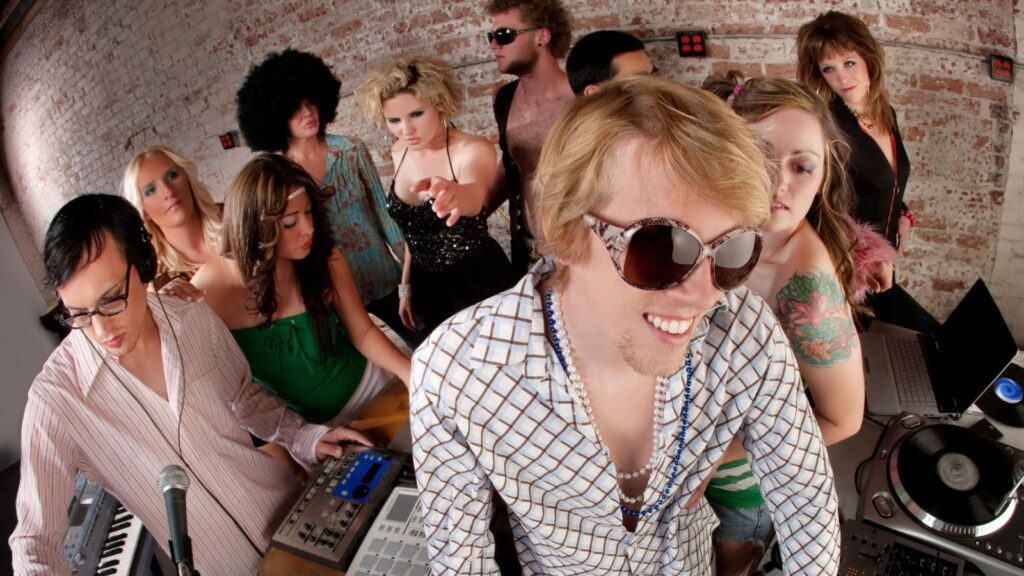
You definitely won’t catch Gen Z using this term, and they would probably think it’s a reference to a new rock band if they heard it. It originates from the 17th century when high jinks was a loud, and lively type of game that people played at social gatherings and parties. So if you’ve ever heard your grandparents use this sentence, they are basically saying that someone was having a rowdy party.
“Back in my day”

There isn’t a faster way to sound old than using this phrase. If you’ve ever caught yourself saying “Back in my day,” then I’m afraid your day was most likely some time ago.
“That’s the ticket”

This is a classic dad phrase, and you’ll often hear an older person saying it after eating a good meal or buying a new car. What they’re trying to say is “ That’s just what I needed”. This phrase originated in British English but was carried across into the American language sometime after World War II.
“Bite the bullet”

This phrase is intended to describe having to bear something necessary, and painful, without making too much fuss. Now, when we tell you that it originally came from soldiers who had to endure surgery in the war with little, to no pain relief, and they were often given a bullet to bite down on, this phrase takes on an entirely new, dark, and dreadful meaning; another reason why it’s only used by older generations.
“Close, but no cigar”

“Close but no cigar” is intended to mean that someone nearly succeeded at something, but fell short. This is a reference to the fact that in the early 20th century, fairgrounds, and carnivals used to give out cigars as prizes, and if players were unsuccessful, the steward would shout this to let them know they’d lost. Given the fact that most younger generations don’t smoke, and it’s mainly gone out of fashion, saying this phrase instantly makes someone sound old.
“Put your dukes up”

“Back in the day” this used to mean that someone wanted to have a fistfight with you. In English Cockney slang, dukes were known as fists, and this came from the saying “The Duke of York,” which Londoners shortened to simply “Dukes” which meant fists, and the saying somehow carried across to America. An old phrase that’s an instant signal that you’re talking with an older person.
“Now we’re cooking on gas”
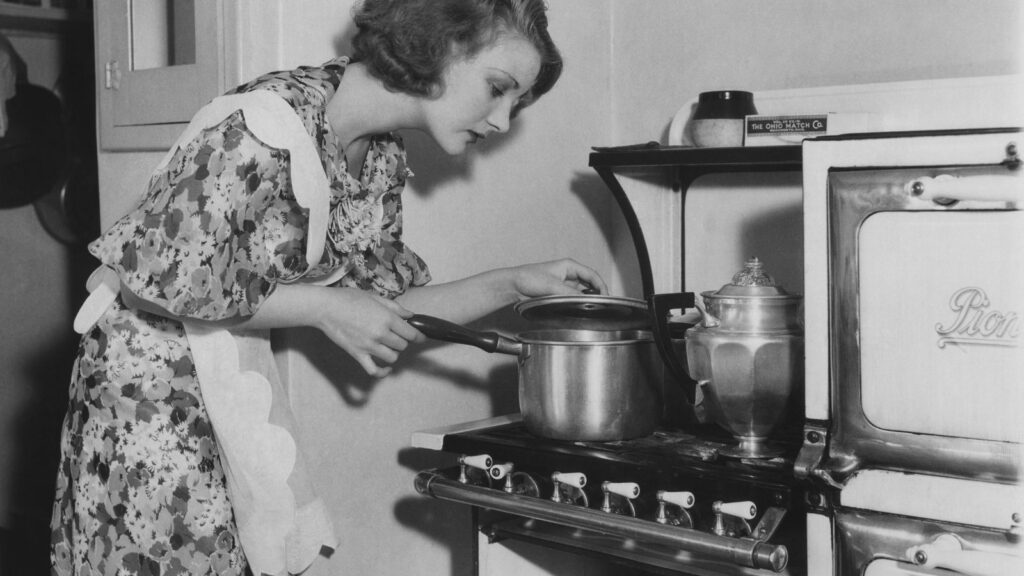
This is a slogan thought up by the gas industry in the 1930s to try and make people switch from using electric cookers to natural gas. The term is used to signal that something is now working better, faster, and more efficiently. But it’s an outdated phrase, and most people seldom use it, or even know what it means now.
“Change the record”
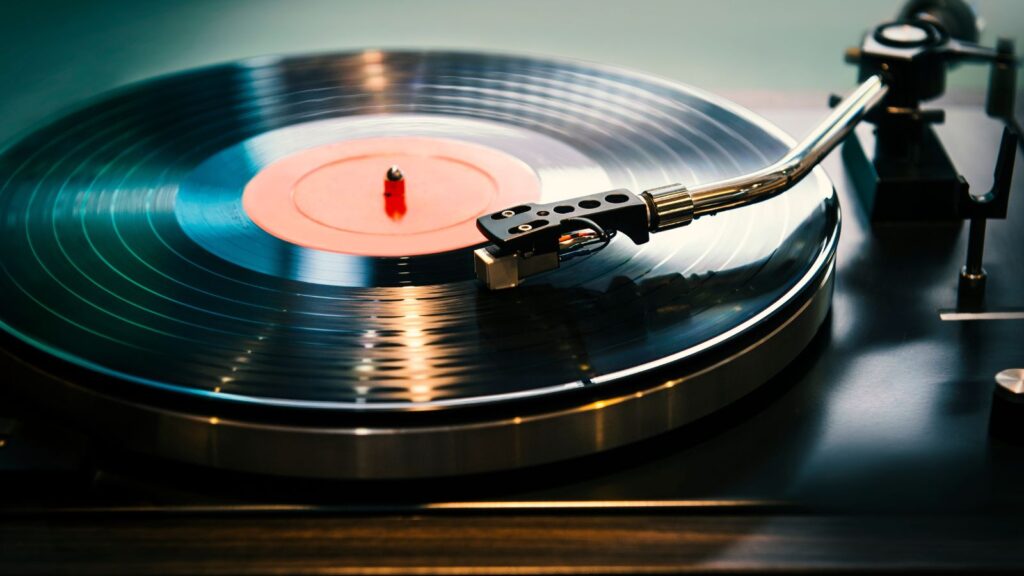
Change the record refers to a time when the only way to listen to music was on old LP records (the big round things the size of a dinner plate). If you wanted to skip to the next song, you couldn’t just hit next on a remote control, you had to physically lift the needle off the record, remove it, and change the record that was playing. An old-fashioned phrase that refers to an ancient way of listening to music.
“Getting jiggy with it”
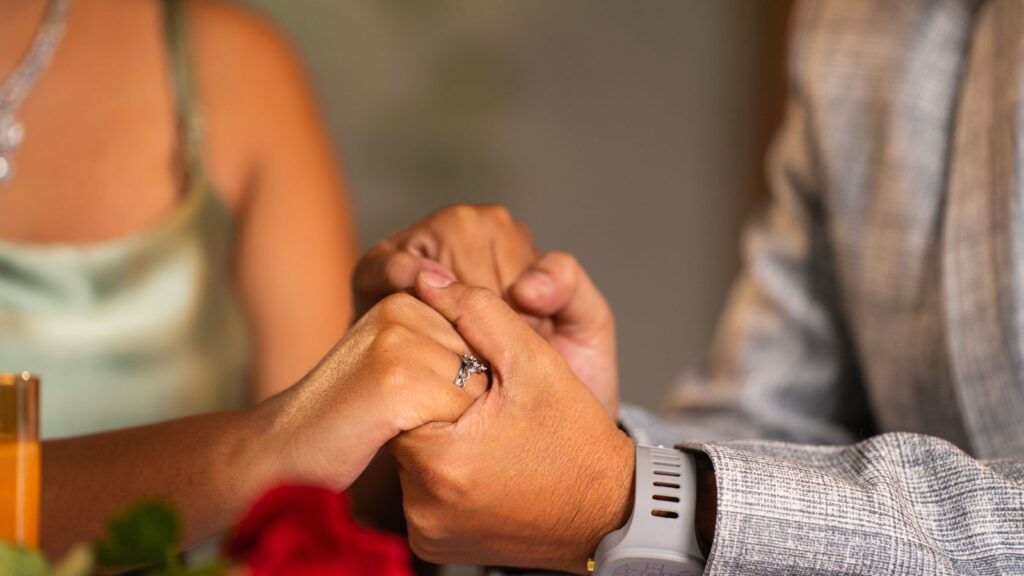
This phrase became popular in the 90s, and early 2000s as an inference for any kind of intimacy between couples. It was mainly popularized by the Men in Black films, and Will Smith’s song “Getting Jiggy With It,” which then became a euphemism for romantic affection.
“Read between the lines”

This phrase is a signal to examine something in more detail, and it dates back to the time when letter writers would encrypt scrolls, and communications with secret text that was inserted faintly in between the lines of a letter.
“Hold your horses”

A signal to wait, pause, or slow down, this phrase comes from when horsemen used to have to hold their horses back from galloping off. But it’s not something that many people would say in 2024, and you definitely won’t catch a Millenial or Gen Z using this in a sentence.
“Hanky-panky”
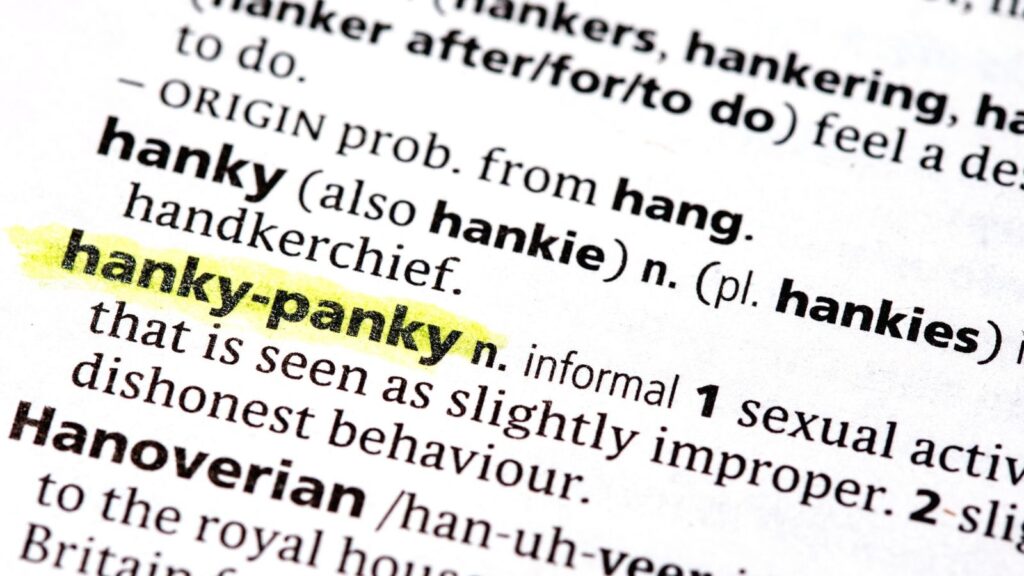
If you hear anyone using the term “Hank-panky” in a sentence, not only is this extra-cringy, but it’s also an instant sign of an older person. Used to describe the amorous affections between a romantic couple, we think it sounds so outdated, and if you hear anyone saying they’re getting up to some “Hanky-panky” our best advice is to leave the vicinity.
“When I was a child”

This phrase sounds so dramatic, and you might have heard your grandparents say something like “When I was a child there was no such thing as pocket money” or something, similarly cringy. It’s an instant acknowledgment, both by the person saying it, and you, that this is coming from an older individual whose comparing their childhood with, a probably very different, modern one.
“Hang up the phone”
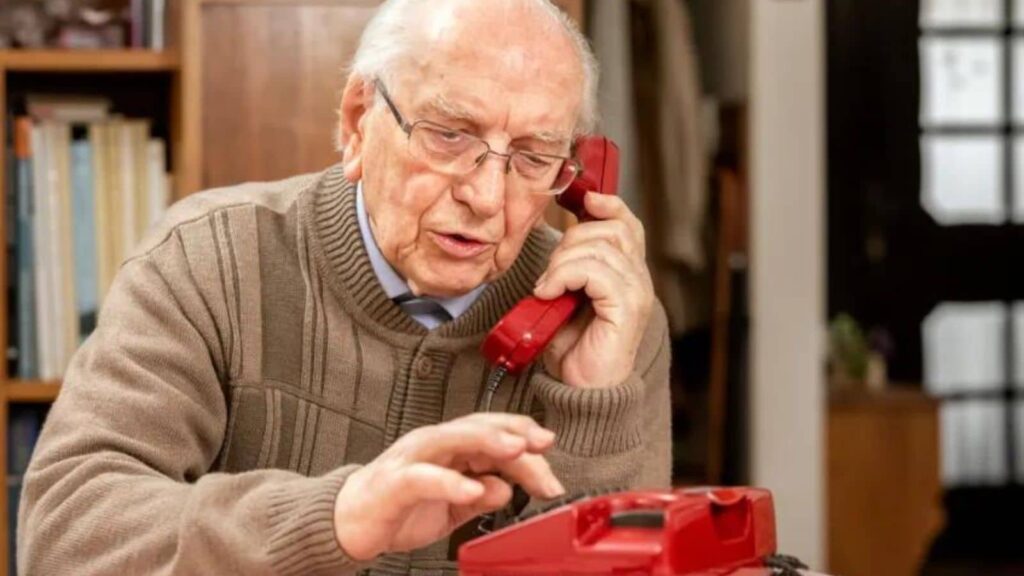
Before mobile phones, house phones were all wired into a socket in the wall and they sat on a receiver, and the only way to end the phone call was to physically hang up the phone.
People who have spent most of their lives using a more traditional telephone find it hard to let go of the habit of saying “hang up the phone,” when they mean to end the call.
18 Relationship Deal Breakers for Men

18 Relationship Deal Breakers for Men
19 Personality Traits That Signal You’re an Extremely Toxic Person

19 Personality Traits That Signal You’re an Extremely Toxic Person
